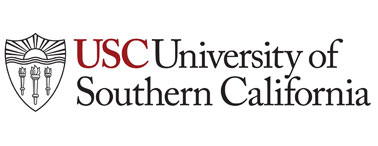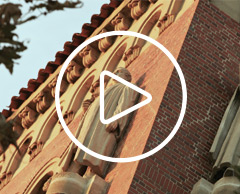Private Financing
Private financing programs are unsecured educational loans made by private financial institutions such as a banks or credit unions. These are loans that must be repaid with interest.
You can borrow up to the USC estimated cost of attendance, including tuition, mandatory fees, housing and dining, books and supplies, and even transportation, less other aid received. Undergraduates will typically need to apply with a credit-worthy co-borrower. Graduate students can apply without a co-borrower but may obtain better rates by applying with a credit-worthy co-borrower.
Interest rates, origination and repayment fees for this loan program are based on the credit-worthiness of the borrower and/or co-borrower. These rates will vary on a monthly or quarterly basis and may not have a maximum rate.
Repayment generally begins immediately after full disbursement. Some lenders may defer (postpone) repayment during periods of at least half-time enrollment and/or economic hardship, but interest will accrue on the loan from the date it is disbursed. To reduce the cost of borrowing, consider making in-school interest or interest + principal payments.
Rules for repayment and deferment vary from lender to lender. Check with your lender for more information.
Important Information
The repayment terms of federal loan programs may be more favorable than the terms of private loan programs. Prior to applying for private financing, students should exhaust all Federal Title IV assistance available, including Federal Pell Grants, the Direct Loan, the Direct Graduate PLUS Loan and the Direct Parent PLUS Loan.
Federal student loans are required by law to provide a range of flexible repayment options, including but not limited to Income-Based Repayment and Income-Contingent Repayment plans, as well as loan forgiveness benefits, which other student loans are not required to provide. Federal Direct Loans are available to students regardless of income. Additionally, private student loans:
May not be included in Federal Direct Consolidation Loans.
Are not eligible for Federal Income-Based Repayment Plans.
Are not eligible for Federal Economic Hardship Deferments.
How to Apply
- If you did not apply for need-based financial aid, submit a Financial Aid Supplement online through your for the appropriate academic year.
- Review your and your co-borrower's credit reports to ensure accuracy.
- Apply online with the lender of your choice.
The lender must approve the student's (and co-borrower's) credit and receive all necessary documentation before they can contact USC to certify the loan. USC will then promptly process the request.
Private Education Loan Applicant Self-Certification Form
The federal government now requires students applying for private loans to complete and sign a Private Education Loan Applicant Self-Certification form. Your lender will send this form to you as part of the application process.
Submit the form directly to your lender. You will be asked to provide your estimated cost of attendance and estimated financial aid eligibility. If you applied for financial aid, you can obtain this information from your financial aid summary. Students who have not applied for aid should refer to the undergraduate costs or graduate costs page to obtain the necessary information.
Choosing a Private Loan
Private education loans vary by lender. You should compare the loan terms and conditions and choose the one that best fits your situation. You can compare private loans from multiple lenders:
| The ELM Select tool displays a neutral list (in random order) of private lenders that USC students have borrowed from within the past three years. USC does not prefer, recommend, promote, endorse or suggest any of these lenders. |
The use of a lender listed on ELM Select is not required. USC will process loans from any eligible lender the student chooses. USC may not deny or otherwise impede the borrower's choice of a lender or cause unnecessary delay in loan certification for those borrowers who choose a lender not listed on ELM Select.
Here are several questions you may want to consider when choosing a private loan:
What is the interest rate? Is it fixed or variable?
What fees must be paid and when are they due?
What are the repayment terms? Is there a grace period? Are there deferment or forbearance options?
What will my monthly payment be?
Do I need to be admitted to a degree or certificate program?
Do I need to be enrolled at least half-time?
Is there a Satisfactory Academic Progress requirement?
Can the loan be applied to past periods of enrollment? If so:
Within what timeframe must students apply if they are still enrolled at USC?
Within what timeframe must students apply if they have withdrawn or graduated from USC?
In addition, each of the following states offers an alternative loan program specifically for its residents. If you are a resident of one of these states, be sure to review the alternative loan information by clicking on the name of the state in the table below or calling the number provided.
States |
Telephone Number |
|---|---|
| Alaska | (800) 441-2962 |
| Connecticut | (717) 254-2395 |
| Iowa | (85) 811-9849 |
| Maine | (800) 228-3734 |
| Massachusetts | (800) 266-0243 |
| Minnesota | (800) 657-3866 |
| North Dakota | (800) 472-2166 |
| New Jersey | (800) 792-8670 |
| Rhode Island | (800) 758-7562 |

